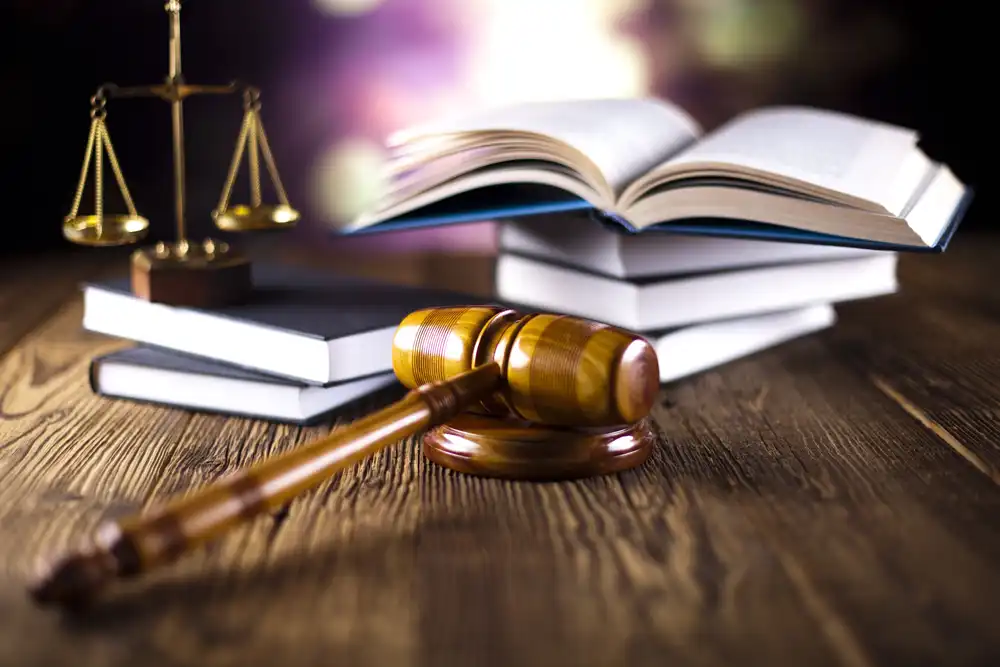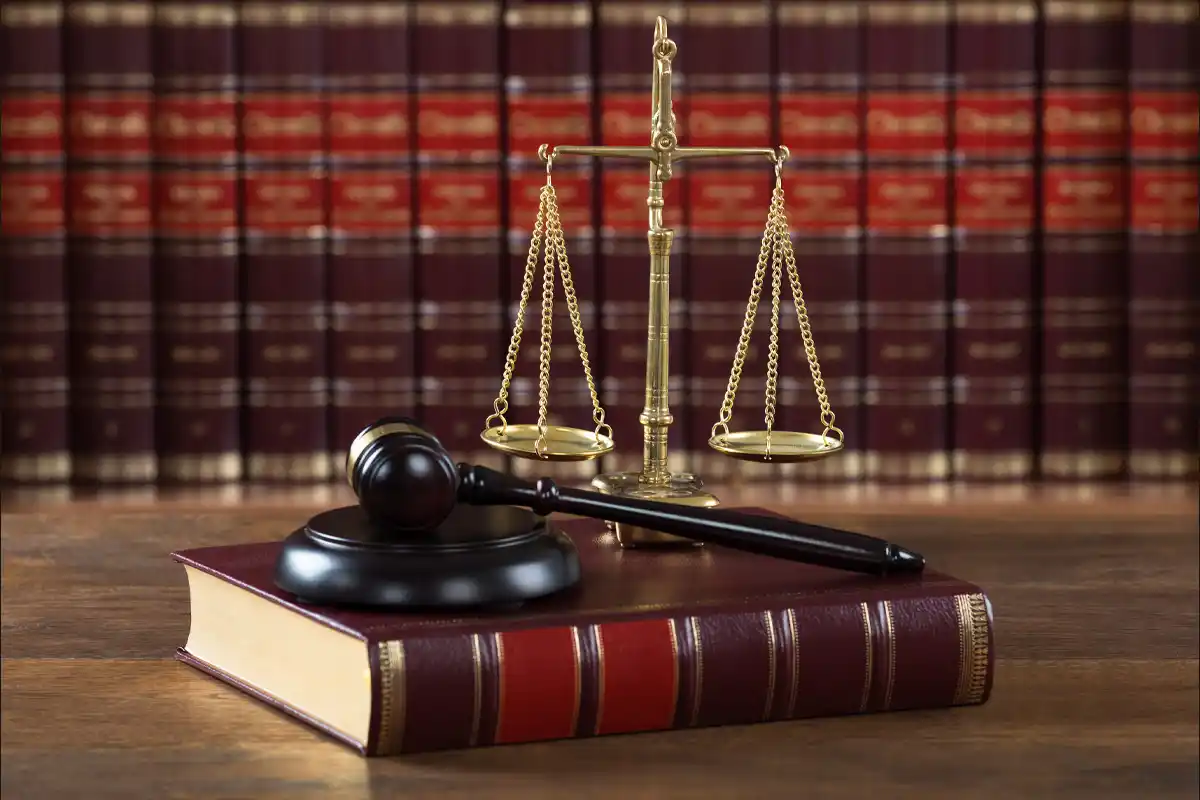
Sex Crime Defense Lawyer | Orlando & Central Florida
Criminal Defense Attorney, Mary. M. Ibrahim proudly provides Sex Crime Defense legal services throughout Central Florida, including, Orange County, Osceola County, and Seminole County and surrounding areas.

Call 407.255.6300 today to schedule a confidential consultation with sex crime defense attorney, Mary M. Ibrahim.
Accusations of sex crimes are incredibly serious and can have devastating consequences, both legally and personally. If you're facing such charges in Orlando, Orange County, or Central Florida, it's absolutely vital to understand your rights and seek experienced legal representation immediately. The Law Offices of Mary M. Ibrahim, P.A., are here to provide a strong and effective defense in these sensitive and complex cases.
Understanding Sex Crimes in Florida
Florida law addresses a wide range of sex offenses, each with its own specific legal definitions and associated penalties. These cases are often highly complex and emotionally charged, requiring a skilled attorney to navigate the legal complexities.
Specific Sex Crimes in Florida (Florida Statutes Chapter 800)
Some common sex crimes in Florida include:
- Sexual Battery (Florida Statute 794.011): This involves the touching of the victim's intimate parts, or the intentional touching of the victim's intimate parts by the offender, without the victim's consent. The severity of the charge increases if force, coercion, or the threat of force is used, or if the victim is under the age of 12.
- Lewd or Lascivious Molestation (Florida Statute 800.04): This involves lewd or lascivious acts in the presence of a child under the age of 16, with the intent to arouse, appeal to, or gratify the lust, passion, or sexual desire of either the offender or the child.
- Lewd or Lascivious Behavior (Florida Statute 800.02): This involves lewd or lascivious acts, such as exposure of sexual organs, but without the specific intent related to a child as in 800.04.
- Child Pornography (Florida Statute 827.001): This involves the production, possession, or distribution of visual material depicting a minor engaging in sexual conduct.
- Prostitution (Florida Statute 796.07): This involves the offering, solicitation, or commission of sexual acts for hire.
Penalties for Sex Crime Convictions in Florida
The penalties for sex crime convictions in Florida are extremely severe and can include:
- Imprisonment: Lengthy prison sentences, ranging from several years to life imprisonment, depending on the specific offense and the circumstances involved.
- Fines: Substantial fines, often in the tens or hundreds of thousands of dollars.
- Sex Offender Registration: Conviction of certain sex crimes requires registration as a sex offender, which involves providing personal information to law enforcement and can significantly restrict where you can live or work.
- Probation: Supervised probation with strict conditions, such as mandatory counseling, restrictions on contact with children, and electronic monitoring.
- A Criminal Record: A sex crime conviction will result in a permanent and highly stigmatized criminal record, which can severely impact employment, housing, and other opportunities.
Potential Sex Crime Defense Strategies
Defending against sex crime charges requires a highly skilled and experienced attorney. These cases often rely heavily on circumstantial evidence and witness testimony, making them particularly challenging. Some potential defense strategies include:
- Consent: In some cases, consent may be a valid defense, although it's crucial to understand the legal nuances of consent, especially in cases involving alleged victims under the age of consent.
- False Accusations: Unfortunately, false accusations of sex crimes do occur. A skilled attorney can investigate the circumstances and challenge the credibility of the accuser.
- Mistaken Identity: Eyewitness testimony can be unreliable. Challenging the identification of the accused is a possible defense strategy.
- Lack of Intent: The prosecution must prove intent to commit the alleged offense. The defense may argue that the actions were misinterpreted or that there was a misunderstanding.
- Illegal Search and Seizure: If law enforcement obtained evidence illegally or violated the accused's constitutional rights, the evidence may be suppressed.
- Challenging the Evidence: The prosecution must prove guilt beyond a reasonable doubt. If the evidence is weak or circumstantial, the charges may be dismissed or reduced.
The Importance of Legal Representation in Sex Crime Defense Cases
Sex crime cases are incredibly sensitive and complex. The consequences of a conviction are life-altering. It's absolutely crucial to seek the advice and representation of an experienced criminal defense attorney specializing in sex crimes.
Attorney Mary M. Ibrahim understands the gravity of these situations and will thoroughly investigate your case, protect your rights, and develop the most effective defense strategy possible. She will handle your case with discretion and compassion while providing aggressive representation in court. Don't face these charges alone. Contact The Law Offices of Mary M. Ibrahim, P.A., today for a confidential consultation. Your future may depend on it.
Call 407.255.6300 today to schedule a confidential consultation with sex crime defense lawyer, Mary M. Ibrahim.
About Felony Crimes

In Florida, a felony is a serious criminal offense punishable by more than one year in state prison, up to life imprisonment, or even death. Felonies are categorized into degrees, with varying levels of severity and corresponding penalties. The most serious are capital felonies, punishable by death or life imprisonment, followed by life felonies, which carry a life sentence.
In Florida, a felony is a serious criminal offense punishable by more than one year in state prison, up to life imprisonment, or even death. Felonies are categorized into degrees, with varying levels of severity and corresponding penalties. The most serious are capital felonies, punishable by death or life imprisonment, followed by life felonies, which carry a life sentence. Third-degree felonies are the least severe, with a maximum of five years in prison and a $5,000 fine. Second-degree felonies are more serious, punishable by up to 15 years in prison and a $10,000 fine. First-degree felonies carry the most substantial penalties, with up to 30 years in prison and a $10,000 fine, although some first-degree felonies have even harsher penalties.
Beyond imprisonment and fines, a felony conviction in Florida can have lasting consequences, impacting an individual's rights and opportunities. These can include restrictions on voting, firearm ownership, jury service, and certain professions. It's crucial to understand the potential ramifications of felony charges and seek experienced legal counsel. The specific penalties and classifications can be complex, so consulting with a qualified attorney is essential for anyone facing felony accusations.
About Felony Crimes

In Florida, a felony is a serious criminal offense punishable by more than one year in state prison, up to life imprisonment, or even death. Felonies are categorized into degrees, with varying levels of severity and corresponding penalties. The most serious are capital felonies, punishable by death or life imprisonment, followed by life felonies, which carry a life sentence.
In Florida, a felony is a serious criminal offense punishable by more than one year in state prison, up to life imprisonment, or even death. Felonies are categorized into degrees, with varying levels of severity and corresponding penalties. The most serious are capital felonies, punishable by death or life imprisonment, followed by life felonies, which carry a life sentence. Third-degree felonies are the least severe, with a maximum of five years in prison and a $5,000 fine. Second-degree felonies are more serious, punishable by up to 15 years in prison and a $10,000 fine. First-degree felonies carry the most substantial penalties, with up to 30 years in prison and a $10,000 fine, although some first-degree felonies have even harsher penalties.
Beyond imprisonment and fines, a felony conviction in Florida can have lasting consequences, impacting an individual's rights and opportunities. These can include restrictions on voting, firearm ownership, jury service, and certain professions. It's crucial to understand the potential ramifications of felony charges and seek experienced legal counsel. The specific penalties and classifications can be complex, so consulting with a qualified attorney is essential for anyone facing felony accusations.
About Misdemeanor Crimes

In Florida, a misdemeanor is a criminal offense less serious than a felony, generally punishable by fines, probation, and up to one year in a county jail. Misdemeanors are categorized into two degrees: first-degree and second-degree.
A first-degree misdemeanor is the more serious of the two, carrying a maximum penalty of one year in jail and a $1,000 fine. Examples include battery, petit theft (first offense), and driving under the influence (DUI) – first offense. Second-degree misdemeanors are less severe, with a maximum of 60 days in jail and a $500 fine. These can include offenses like simple assault, disorderly conduct, and certain traffic violations.
While misdemeanors don't carry the same severe penalties as felonies, a conviction can still have negative consequences. A criminal record, even for a misdemeanor, can impact employment opportunities, housing, and other aspects of life. It's important to take any misdemeanor charge seriously and understand the potential ramifications. Although the penalties are less severe than felonies, legal representation is still crucial to protect your rights and minimize the impact of a conviction. Consulting with a qualified attorney is recommended if you are facing misdemeanor charges in Florida.
